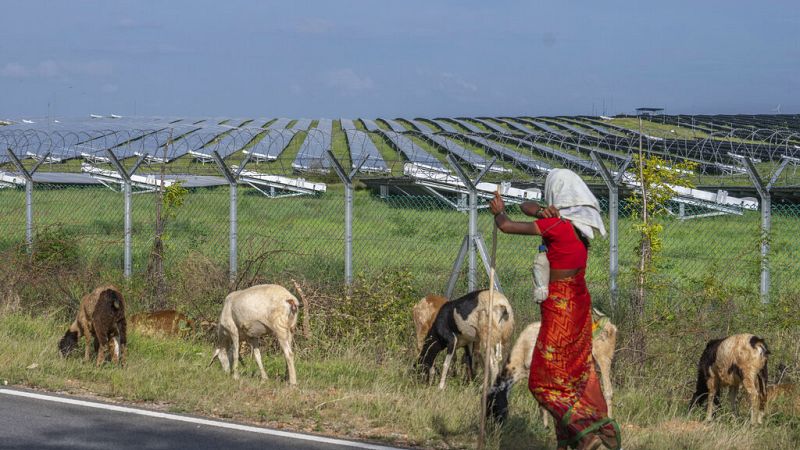COP29: Is Net Zero just a dream or an attainable goal?

Net Zero is a hot topic at COP29 as we all focus on trying to limit global warming. But is it technically possible? According world-leading scientists, it most certainly is.
Euronews spoke with Diana Ürge-Vorsatz, Professor at the Central European University and Vice-Chair at the International Panel on Climate Change (IPCC):
"The IPCC has shown that not only is it possible, but there are multiple ways to get to Net Zero. Of course, none of them are easy. However, it is still possible."
To reach Net Zero, you have to drive down your energy use as much as possible. And in Europe that means reuse, recycle, repurpose and plant trees, wouldn't you agree?
More trees for our cities
"Take urban trees, for example. Already, urban trees capture seven gigatons of carbon dioxide altogether, and an additional 400 megatons every year. So, our cities would really benefit from having many more big trees and other such infrastructure. They bring down energy use and help with adaptation, mental health, create better and more liveable cities as well as increase property value."
Existing technology allows buildings in tree-filled cities to be retrofitted so that they become energy producers rather than energy consumers.
That said, there are many sectors such as petrochemicals, steel and cement, where it's impossible to operate without emitting CO2 into the atmosphere. These sectors need to find a way to capture that carbon, but carbon capture technologies are proving expensive and difficult to scale. So, are there any technologies that can fix that?
Costly direct air capture of CO2 likely inevitable
To get an answer to this question, we talked to Bertrand Piccard, President of the Solar Impulse Foundation:
"I believe that we can become carbon neutral in our world with renewable energy, energy efficiency and all the solutions that are available to us. But these are currently not being implemented fast enough, which means that we will most probably need direct air capture because we are not doing enough right now. We will need to pay the price of our inaction by putting a lot of money into direct air capture."
In conclusion, scientists and engineers are convinced that Net Zero is possible. And in many countries, including in the EU, it is a legal obligation. However, fossil fuel use is still growing and nobody believes that it has even reached its peaked. This means we're going to need a huge shift in society, as well as technology, to make Net Zero a reality.
Saturday, november 23, 2024

